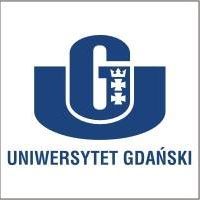预约演示
更新于:2025-09-06
Cucurbitacin I
葫芦素I
更新于:2025-09-06
概要
基本信息
非在研机构- |
权益机构- |
最高研发阶段临床前 |
首次获批日期- |
最高研发阶段(中国)- |
特殊审评- |
结构/序列
分子式C30H42O7 |
InChIKeyNISPVUDLMHQFRQ-MKIKIEMVSA-N |
CAS号2222-07-3 |
关联
100 项与 葫芦素I 相关的临床结果
登录后查看更多信息
100 项与 葫芦素I 相关的转化医学
登录后查看更多信息
100 项与 葫芦素I 相关的专利(医药)
登录后查看更多信息
305
项与 葫芦素I 相关的文献(医药)2025-12-31·JOURNAL OF ENZYME INHIBITION AND MEDICINAL CHEMISTRY
Profiling and cheminformatics bioprospection of curcurbitacin I and momordin Ic from
Momordica balsamina
on α-amylase and α-glucosidase
Article
作者: Jaichand, Viruska ; Mohanlall, Viresh ; Lanrewaju, Adedayo Ayodeji ; Sabiu, Saheed ; Baijnath, Himansu
Momordica spp. has been traditionally used to manage type 2 diabetes mellitus, but the mechanisms and metabolites remain unclear. This study evaluated the inhibitory potential of Momordica balsamina extracts on α-amylase and α-glucosidase in vitro, identifying cucurbitacin I and momordin Ic via high-performance liquid chromatography-photo diode array, and their inhibitory potential in silico. Ethyl acetate seed extract (14.46 µg/ml) and hexane fruit flesh extract (16.79 µg/ml) exhibited lower IC50 values against α-amylase and α-glucosidase, respectively, compared to acarbose (reference standard). Comparatively, momordin Ic concentrations (36.57-605.98 µg/ml) were higher than cucurbitacin I (17.08-44.34 µg/ml). A 140 ns simulation showed that cucurbitacin I (-63.06 kcal/mol) and momordin Ic (-66.53 kcal/mol) exhibited stronger binding to α-amylase than acarbose (-36.46 kcal/mol), whereas cucurbitacin I (-38.08 kcal/mol) and momordin Ic (-54.87 kcal/mol) displayed weaker binding to α-glucosidase, relative to acarbose (-63.73 kcal/mol). Generally, momordin Ic demonstrated better thermodynamic properties, hence further in vitro and in vivo studies are needed to validate their antidiabetic potential.
2025-09-01·JOURNAL OF PHARMACEUTICAL AND BIOMEDICAL ANALYSIS
UPLC-Q-TOF/MS-based study on chemical composition, in vivo metabolites, and tissue distribution of ethanol extract of Ganoderma lucidum
Article
作者: Peng, He ; Wang, Xingya ; Pan, Haitao ; Chen, Shengjia ; Chen, Dongjie ; Lin, Xiaojian ; Cheng, Qi ; Chen, Jiajun ; Li, Zhenhao ; Xu, Chunsheng
Ganoderma lucidum (G. lucidum), a medicinal fungus, exhibits diverse pharmacological effects against many diseases. Studies have shown that the ethanol extract of G. lucidum (GLEE), which is rich in triterpenoids, possesses significant anti-carcinogenic effects. Early research focused solely on the pharmacokinetics and metabolism of individual triterpenoids in normal rodents. However, no research has examined the distribution of prototype compounds and metabolites of GLEE in multiple tissues, plasma, or tumor tissue. In this study, ultra-performance liquid chromatography-quadrupole time-of-flight mass spectrometry (UPLC-Q-TOF/MS), combined with the Global Natural Products Social Molecular Networking (GNPS) platform and UNIFI software, was employed to identify and quantify the chemical composition of GLEE. A total of 105 compounds were identified, including 100 triterpenoids and 5 fatty acids, with 18 high-content monomers quantitatively analyzed. Following six weeks of GLEE administration in tumor-bearing nude mice, 42 prototype compounds and 24 metabolites were identified across plasma, tumors, and eight tissues, including small intestine, stomach, liver, heart, lung, kidney, spleen, and colon. Notably, ganoderic acids A, B, C1, F, and H were the most widely distributed compounds across these tissues. The metabolism of GLEE involves both phase I and phase II reactions. This study is the first to provide a comprehensive profile of GLEE's chemical composition, distribution, and metabolism, revealing the potential active triterpenoids responsible for its anti-cancer effects. Our findings provide a foundation for future studies focused on the pharmacological mechanisms of these compounds, offering new insights into the therapeutic potential of G. lucidum in cancer treatment.
2025-07-01·JOURNAL OF MOLECULAR LIQUIDS
Exploring the potential of Cucurbitacin analogs as HMGB1 inhibitors in glioblastoma multiforme: Insights from molecular docking and MD simulation of various triterpenoids
作者: Banerjee, Shreya ; Patra, Sucharita ; Mandal, Mahitosh ; Majumder, Ranabir
Glioblastoma multiforme (GBM) is the most aggressive and prevalent central nervous system (CNS) malignancy, characterized by tumor heterogeneity and poor prognosis.In GBM, tumor-induced inflammation, hypoxia, and cellular damage release damage-associated mol. patterns (DAMPs) like High Mobility Group Box 1 (HMGB1).HMGB1 exerts both tumor-promoting and tumor-suppressive effects, its functional outcome is regulated by its subcellular localization, redox state, and the immune cell infiltrate within the tumor microenvironment (TME).In our study, we focus on confirming the protumorigenic role of HMGB1 using bioinformatic tools to further validate its contribution to tumor progression.Therefore, targeted inhibition of HMGB1 seems to be a promising therapeutic strategy.Glycyrrhizin, a triterpenoid, is a known HMGB1 inhibitor.We aimed to create a more effective inhibitor by utilizing structural insights of glycyrrhizin.We used computational screening to evaluate the bioactivity of other potential triterpenoids as HMGB1 inhibitors in the context of GBM.Mol. docking and MD simulation were performed to screen the triterpenoid library.We found that triterpenoids like cucurbitacin E, F, I, and K have a higher potential to bind at the TLR4 and RAGE binding domains of HMGB1 compared to glycyrrhizin.These domains are crucial for HMGB1-receptor interactions, which enhance GBM malignancy.Moreover, drug-likeness and pharmacokinetic analyses of cucurbitacins indicated favorable therapeutic profiles.Our findings advance the discovery of novel HMGB1 inhibitors, improve GBM treatment, and establish a foundation for further validation and clin. applications.
100 项与 葫芦素I 相关的药物交易
登录后查看更多信息
研发状态
10 条进展最快的记录, 后查看更多信息
登录
| 适应症 | 最高研发状态 | 国家/地区 | 公司 | 日期 |
|---|---|---|---|---|
| 肿瘤 | 临床前 | 波兰 | 1981-05-01 |
登录后查看更多信息
临床结果
临床结果
适应症
分期
评价
查看全部结果
| 研究 | 分期 | 人群特征 | 评价人数 | 分组 | 结果 | 评价 | 发布日期 |
|---|
No Data | |||||||
登录后查看更多信息
转化医学
使用我们的转化医学数据加速您的研究。
登录
或

药物交易
使用我们的药物交易数据加速您的研究。
登录
或

核心专利
使用我们的核心专利数据促进您的研究。
登录
或

临床分析
紧跟全球注册中心的最新临床试验。
登录
或

批准
利用最新的监管批准信息加速您的研究。
登录
或

特殊审评
只需点击几下即可了解关键药物信息。
登录
或

Eureka LS:
全新生物医药AI Agent 覆盖科研全链路,让突破性发现快人一步
立即开始免费试用!
智慧芽新药情报库是智慧芽专为生命科学人士构建的基于AI的创新药情报平台,助您全方位提升您的研发与决策效率。
立即开始数据试用!
智慧芽新药库数据也通过智慧芽数据服务平台,以API或者数据包形式对外开放,助您更加充分利用智慧芽新药情报信息。
生物序列数据库
生物药研发创新
免费使用
化学结构数据库
小分子化药研发创新
免费使用
